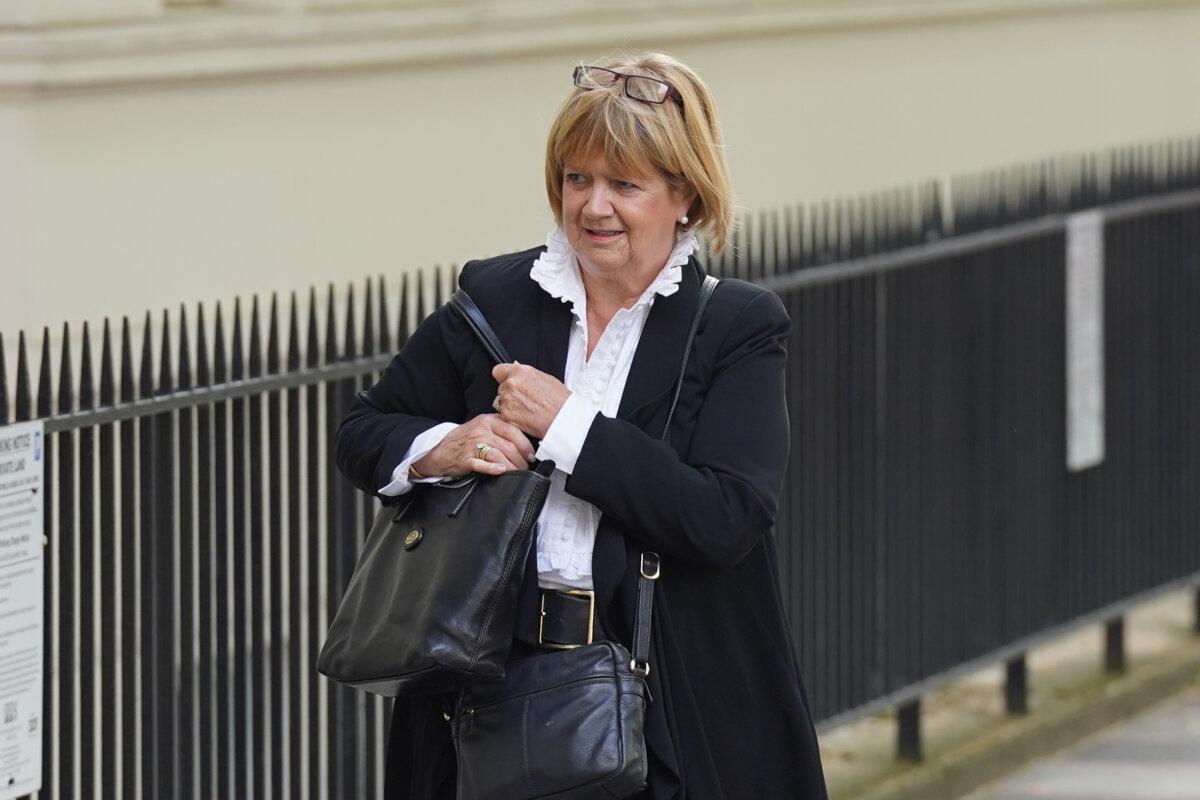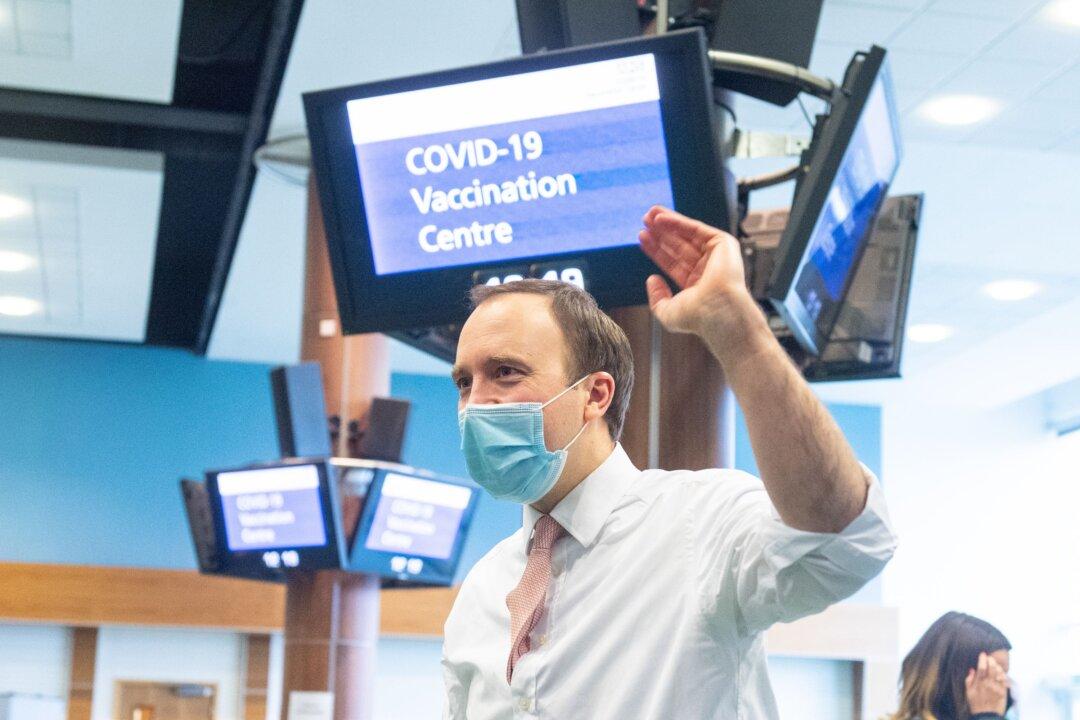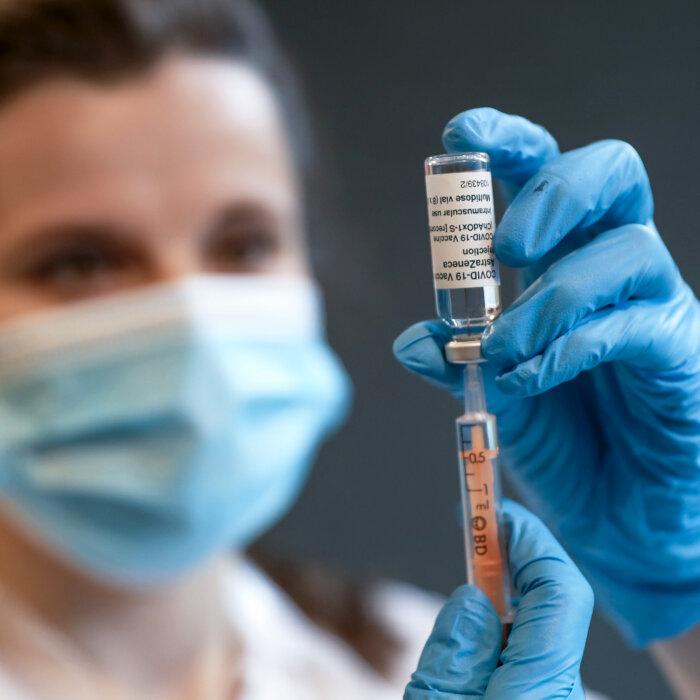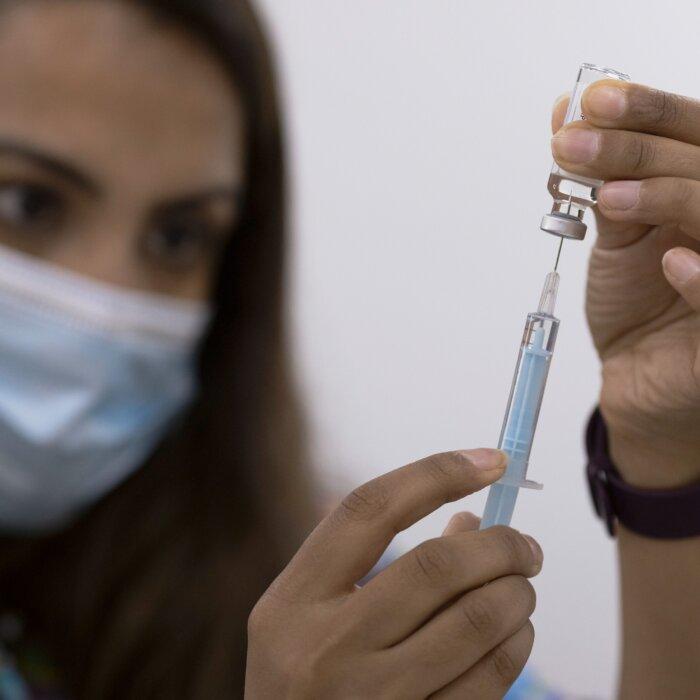YouTube removed a video of a senior barrister submitting evidence on behalf of the vaccine injured and bereaved, the UK COVID Inquiry heard on Tuesday.
Anna Morris, KC, addressed the opening day of Module 4 of the inquiry which aims to examine the impact of the COVID-19 vaccines and other drugs, telling the hearing that a post of her preliminary submissions had been taken down by the social media giant.
She told the inquiry chairwoman Baroness Heather Hallett, “YouTube removed a video featuring my legal submissions to you m’lady on 13th September 2023 and despite request for a thorough review, YouTube cited a violation of its medical misinformation policy as grounds for removal.”
Morris said it was vital to understand “the stigma and censorship” experienced by the vaccine injured and bereaved, adding, “Doctors were instructed to keep their concerns from the public, including their own patients.”
“A poll of all [vaccine injury support group] members found 74 percent have been censored when talking about vaccines on social media,” she added.
‘An Uncomfortable Truth’
Representing the support groups UKCVFamily, Vaccine Injured Bereaved UK and the Scottish Vaccine Injury Group, Morris told the inquiry, “The thousands of people that these three groups represent present what is an uncomfortable truth for many—that vaccine injury and death are part of the pandemic story.”She urged Hallett to consider whether “political pressure” had created an environment “in which the assessment and the regulation of the safety of vaccines was not as robust as it should have or could have been,” or if a focus on jabs as the only solution meant that alternative treatments and preventatives were overlooked.
Morris also questioned if the much-repeated message to the public to “follow the science” had contributed to pressure on people to take the vaccines.
“Our groups question whether that mantra and that mindset contributed to a culture of political and public pressure which dictated that vaccines were inherently good and that there would be no adverse reactions expected,” she said.
“The inquiry must have the courage to examine how the public messaging, narrative and the context of the vaccine rollout created a hostile environment for the reporting of Covid vaccine-related deaths and injury.”
During the hearing, the inquiry was shown a 15-minute video which included the stories of a number of those who suffered serious side-effects from vaccination, which health officials maintain are “very rare.”

‘False Narratives’
Hugo Keith, KC, lead counsel for the inquiry, told the hearing, “The references in this video to the obvious and very well-known fact that in very rare cases, vaccination has serious side-effects, as indeed do all medications, must not be used as a platform to undermine the vital public health role that vaccination plays in keeping people safe from diseases, or to try to argue that at a population level, vaccination is not overwhelmingly beneficial.”Keith, who has represented a number of corporate clients in high-profile cases of serious fraud, including Libor and Forex, as well as acting for Queen Elizabeth II at the inquest into the death of Diana, Princess of Wales, said it was “obvious that a number of false narratives had emerged during the pandemic.”
He said these ranged from “tropes concerning the effectiveness of vaccines, their chemical composition (and) certain side-effects, to more grandiose claims that vaccine-related deaths were being concealed or that vaccines could alter one’s DNA, or that Covid itself was deliberately created as a pretext for mass vaccination.”
Keith told the hearing that such narratives were born partly from “low trust in the government and scientists and medics, and that lack of trust appears to go hand in hand with high reliance on social media, high distrust about vaccine safety, and high levels of vaccine hesitancy.”
Keith said that the overall good to public health from mass vaccination was “beyond argument” but said the inquiry would consider whether the benefits outweighed the risks for some people.
After hearing from representatives of bereaved families and vaccine injury groups on Wednesday, the inquiry will hear evidence from Matt Hancock, who was health secretary from 2018 to 2021, on Thursday.
Hancock, who stood down as an MP in the last election, will be followed by Professor Heidi Larson, an expert in so-called “vaccine hesitancy.”
Module four will focus the vaccines made by pharmaceutical giants Pfizer Biontech, Moderna and AstraZeneca, which were received by the majority of the UK public who chose to take the jabs.
‘Emotionally Charged Issue’
The latest report includes thousands of people’s experiences with COVID-19 vaccines and therapeutics, and acknowledges that discussion of vaccines is “an emotionally charged issue” for some.There were some who felt an “immense sense of relief” because they believed the jab was the only way their lives could get back to “normal,” while others “remain concerned about how quickly it was developed and are still cautious, or even sceptical, about its benefits versus its risks.”
Some told the inquiry they felt coerced into having the jabs, while others said there was not enough information given on potentially serious side-effects.
Researchers heard from unvaccinated individuals who said they were pleased with their decision to decline the jabs, as well as from those who said the vaccine had caused them injury or significant side-effects.
Module 4 is set to run until the end of January and will also look at other drugs used to treat COVID-19, including antivirals and anti-inflammatories.
It will also explore whether reforms to the government’s vaccine damage payment scheme—which provides a one-off payment of £120,000 to those assessed as having being left 60 percent disabled as a result of vaccines—are necessary.







